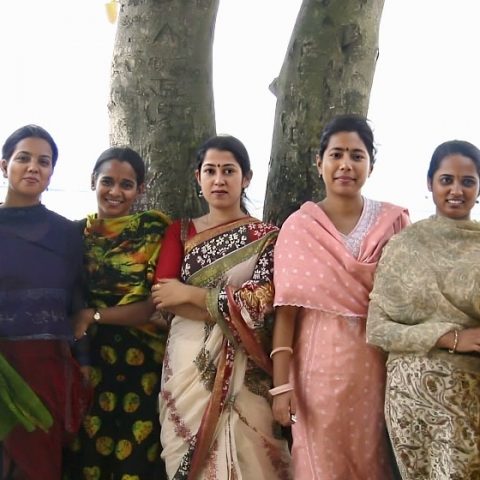Partnership between PATH and icddr,b has yielded crucial research results that have not only impacted local communities, but have also informed global policy advances. Today’s blog highlights icddr,b’s important role in research and clinical care, particularly their work to champion cornerstones of preventing and treating childhood diarrhea.
Salt, sugar and water. Over fifty million lives have been saved thanks to oral rehydration solution (ORS), a simple saline solution developed and tested in Bangladesh in the late 1960s by icddr,b, and now the treatment of choice for children suffering from diarrhoeal diseases.
Based in Bangladesh, icddr,b is an international public health research institution with a long history of addressing some of the most critical health challenges facing low-income countries through research and field-based interventions.
icddr,b researchers actively engage with NGOs, international agencies and the Government of Bangladesh to ensure that research evidence informs policy and practice, and improves national health outcomes and international health policies.
In its 40-year history, Bangladesh has undergone little short of a health revolution. Despite limited financial resources, the country has achieved significant reductions in child and maternal mortality, and is one of just six countries on track to achieve Millennium Development Goals (MDGs) 4 and 5. This can be attributed, in part, to Bangladesh basing many of its health policies on locally-generated evidence.
Worldwide, diarrhoea is the second leading killer disease in children under five years of age. In Bangladesh however, where ORS is widely known about and used by mothers, it now ranks as the ninth leading cause of death. icddr,b scientists have also led the way in demonstrating the benefits ofzinc supplementation, which – when combined with ORS – reduces the duration and severity of diarrhoea and prevents subsequent episodes. This combined therapy is now recommended by the World Health Organization (WHO) for the management of childhood diarrhoea.
With hundreds of patients presenting daily with cholera and other diarrhoeal diseases at icddr,b’s Dhaka Hospital, the technical skills and expert knowledge of icddr,b‘s scientists and clinicians are highly valued when cholera outbreaks occur around the world. A founding member of the World Health Organization’s Global Outbreak and Response Network (GOARN), icddr,b provided technical expertise in the risk assessment and management of cholera outbreaks in Northern Iraq and South Sudan in 2014.
icddr,b’s doctors, nurses, scientists and researchers work together in-house and with global partners such as The Johns Hopkins Bloomberg School of Public Health, the Pan American Health Organization, and Save the Children to find science-based, life-saving solutions.
As we look to the future, icddr,b is committed to working with partners locally and internationally to translate the lessons learnt from Bangladesh, and to continue contributing to saving the lives of children and vulnerable populations across the globe.

